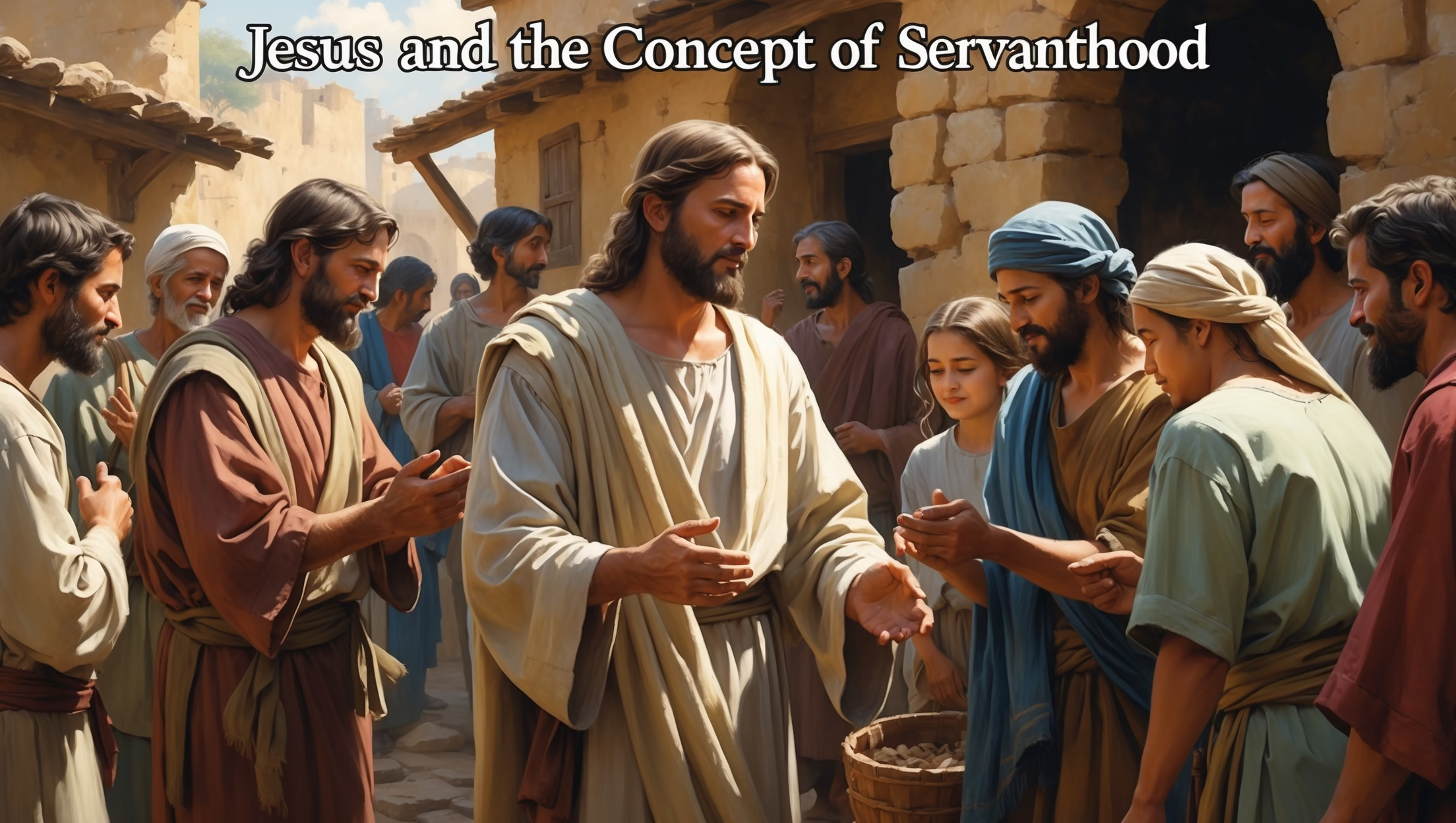Introduction
One of the most defining themes in the ministry of Jesus is His redefinition of leadership through servanthood. Unlike worldly rulers who sought authority, power, and prestige, Jesus taught that true greatness is found in service. This radical concept challenged both the social structures of His time and continues to challenge modern notions of leadership and influence. The concept of jesus servant leadership demonstrates that humility, compassion, and service to others are the highest callings of a disciple.
Jesus did not merely preach about service—He lived it. Every interaction, teaching, and action revealed His commitment to placing others before Himself. His servanthood was not weakness but strength; it revealed the heart of God’s kingdom, where love is expressed through self-giving and sacrifice.

Washing the Disciples’ Feet
Perhaps the most profound demonstration of jesus washes feet is found in John 13, when Jesus washed the feet of His disciples during the Last Supper. This act shocked His followers because it was traditionally the role of a lowly servant to wash dusty feet. Yet, the Son of God humbled Himself to perform this menial task.
Through this act, Jesus taught a vital lesson: leadership is not about being served but about serving others. His words, “I have set you an example that you should do as I have done for you” (John 13:15), emphasize that His disciples are called to mirror this humility.
This symbolic action revealed several truths:
- Humility is essential to discipleship – Jesus stripped Himself of honor and showed that greatness lies in lowering oneself to uplift others.
- Purity of heart matters – washing feet symbolized cleansing, reminding His followers of the spiritual cleansing they would receive through His sacrifice.
- Service is love in action – true love does not remain theoretical; it manifests in practical acts of kindness, even in the smallest details.
By washing feet, Jesus challenged His disciples to embrace a new standard of leadership. In a society obsessed with hierarchy, He turned the structure upside down and showed that authority in God’s kingdom comes through humility.
Servant Leadership in Parables
Jesus reinforced His teaching through parables, often using everyday imagery to highlight the principle of servanthood. In the parable of the Good Samaritan, He taught that service transcends barriers of ethnicity, religion, and social status. By making the despised Samaritan the hero, Jesus emphasized that anyone who serves with compassion demonstrates the heart of God.
In the parable of the talents, Jesus taught that leadership is stewardship—entrusted with resources and responsibilities, believers must serve faithfully. Similarly, in the parable of the sheep and the goats, He illustrated that true service to God is shown in caring for “the least of these.” Every act of kindness, no matter how small, is service to Christ Himself.
These parables remind believers that jesus teaches humility not only through words but through the values He embedded into His stories. They highlight that greatness in the kingdom of God is measured by one’s willingness to serve.
Modern Application
The teachings of Jesus on servanthood have far-reaching implications for today’s world. In workplaces, churches, families, and communities, the call to jesus service remains central. Modern leadership often glorifies power and dominance, but servant leadership emphasizes empathy, collaboration, and humility.
- In Leadership Roles – Christian leaders in business, politics, and ministry are called to model Jesus’ servant leadership by prioritizing people over profit and humility over authority. By seeking the well-being of others, they reflect the kingdom values Jesus proclaimed.
- In Daily Life – Servanthood is not limited to those in leadership roles. Every believer is called to serve in small and big ways—through acts of kindness, volunteering, supporting the vulnerable, or offering encouragement. Even simple gestures, like listening to someone in pain, embody the spirit of service.
- In Relationships – Servanthood reshapes personal relationships by shifting the focus from self-interest to selflessness. Whether in marriage, friendship, or community, choosing to serve one another builds stronger, healthier, and more loving bonds.
- Countering Modern Culture – In a world that prizes self-promotion and personal achievement, living a life of servanthood becomes a radical witness of the gospel. Choosing humility over pride challenges societal norms and demonstrates the transformative power of Christ.
Ultimately, Jesus’ example of servant leadership continues to provide a timeless framework for how to live meaningfully. To serve is to reflect Christ’s heart, and in serving, believers find true greatness.
Conclusion
Jesus redefined leadership by embodying servanthood. His washing of the disciples’ feet remains one of the clearest pictures of humility and service, setting the standard for all who follow Him. Through parables and teachings, He emphasized that leadership is not measured by power or status but by the willingness to serve others.
For modern believers, the call to servanthood is both challenging and liberating. It challenges worldly values of ambition and control while liberating us to find joy in serving others selflessly. True greatness, according to Jesus, is not found in being served but in serving, not in receiving honor but in giving love.
The concept of jesus servant leadership invites all believers to step into a life of humility, sacrifice, and compassion. When we embrace this lifestyle, we live as Christ lived, bringing hope and light to a world in desperate need of selfless love.








